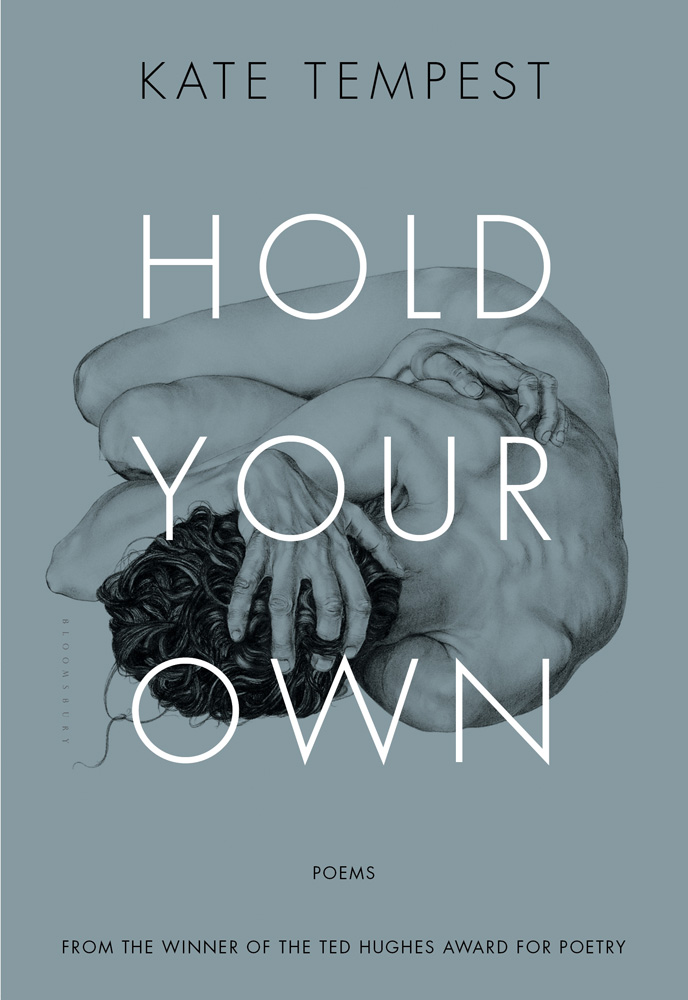
Hold Your Own
کتاب های مرتبط
- اطلاعات
- نقد و بررسی
- دیدگاه کاربران
نقد و بررسی

February 16, 2015
In Britain, Tempest is a front-page phenomenon: the rapper, performance poet, and playwright has picked up attention and honors such as a Mercury Award nomination and a commission from the Royal Shakespeare Company. Her debut poetry collection reveals an earnest writer of strong declarations, clear anecdotes, and inspiring slogans, but also some clichés. Much of the book revolves around a modern Tiresias, a mythic figure who grows up a boy, becomes a woman, and then becomes a man, experiencing and commenting on our highly gendered lives along the way: “Because the boy will grow up/ makes him no less innocent.” In a love poem, she writes, “I feel you feeling me move... I lay in the dark and listened to the rain./ Drank the night in breathless mouthfuls.” Tiresias, in the opening poem, decides that “True love takes its toll/ On souls/ Who are not used to feeling whole.” Tempest often writes about, and for, teenagers; she could get a lot of attention here through her appeal to young readers, or through the power of her live delivery. Though some British performers translate beautifully and almost completely to the printed page, the evidence here is that Tempest may not be one of them.

December 1, 2015
A winner of the Ted Hughes Award and a praised creator of spoken-word performances, Tempest has written a series of poems inspired by the myth of Tiresias. When Zeus and his wife, Hera, fought about who enjoyed sex the most-men or women-Tiresias, who had been both, was summoned and lost his sight in the tumult. The slim book is divided into four sections: "Childhood," "Womanhood," "Manhood," and "Blind Prophet." The long opening poem tells the story of Tiresias, 15, walking through woods and seeing two copulating snakes. He strikes them with a stick and falls, waking up female. Tiresias adjusts to the switch, finds love, but changes back to a man after several years. After he is blinded, he becomes a prophet. "Childhood" has several lively poems that teens should especially enjoy. The descriptions in "School" will ring true for many young people: "We wander into school, happy children;/kind and bright and interested in things./We don't yet know the horrors of the building./The hatred it will teach. The boredom it will bring." In the "Womanhood" poems, the woman Tiresias is described: "The boy in her is strong some days/And calls out for a girl to touch." "Manhood" also continues the mythic tale; the angry poems in the final section, "Blind Prophet," may suit the mood of some young adults. VERDICT A strong work that will introduce teens to a myth and to an examination of sexuality.-Karlan Sick, Library Consultant, New York City
Copyright 2015 School Library Journal, LLC Used with permission.

March 1, 2015
Tempest's first collection is the natural successor to Brand New Ancients. The gods are back, this time in the mythical sense, as she tells the story of blind, prophetic, gender-switching Tiresias. A prologue sets the stage: Zeus and Hera argue over which gender gets more out of sex. Tiresias is the only one who's been both, so this very irreverent pair of gods tracks him down for an opinion. Tiresias, in mourning for the woman he was, agrees with Zeusit's womenso naturally Hera pokes out his eyeballs. From there, the collection is split into four parts: childhood, manhood, womanhood, and later years ( Blind Profit ). As rhythm- and sound-driven as Tempest's book-long poem, this is a particularly unified collection that handles sexual awakenings, social commentary, and the fleetingness of youth through the lens of myth. With each change, Tiresias and various other narrators suffer some form of loss; the core sentiment here is that thankless task perhaps familiar to all poets: so much of life involves the heartbreak of chasing / what's no longer there. (Reprinted with permission of Booklist, copyright 2015, American Library Association.)

























دیدگاه کاربران